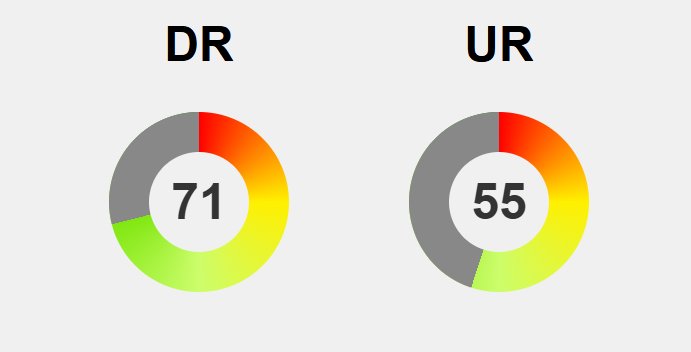In today’s workplaces, feedback should inspire growth, yet often crosses into toxicity—undermining trust, morale, and innovation. Have managers unknowingly fueled this harmful environment through overly harsh or vague criticism? This article delves into the psychological roots of toxic feedback—perfectionism, insecurity, narcissism, and emotional ignorance—and examines their destructive consequences on team cohesion, trust, and organizational success. How can organizations break free from this cycle? By fostering a culture of respectful, constructive communication, balancing critique with recognition, and implementing practical strategies like emotional intelligence training and clear policies. Will leaders lead the change necessary to create safe spaces for honest dialogue and continuous improvement? The key lies in ongoing commitment, self-awareness, and cultivating a workplace environment where feedback fuels development rather than damage, ensuring long-term trust, engagement, and resilience. Are you ready to transform criticism into a powerful tool for growth?
The Power of Feedback: Building Trust and Growth in the Workplace
Feedback is a cornerstone of a healthy workplace. When delivered thoughtfully, it guides employees, recognizes achievements, and fosters continuous improvement. Good feedback isn’t just about pointing out mistakes; it’s about supporting growth and building trust. Clear, respectful communication helps teams understand expectations and feel valued for their efforts.
However, not all feedback hits the mark. When criticism becomes overly harsh, vague, or personal, it can quickly turn toxic. Instead of motivating, it erodes confidence and creates a tense environment. Recognizing the difference between constructive guidance and harmful criticism is essential for maintaining a positive workplace culture.
Toxic feedback can come from various sources—managers, coworkers, or even organizational norms. It often stems from underlying issues like perfectionism, insecurity, or a desire for control. These tendencies lead to focus on flaws rather than progress, making feedback more about blame than development. Over time, this pattern damages relationships and hampers collaboration.
The impact of negative feedback extends beyond individual morale. When team members are constantly criticized, trust in leadership diminishes. Open communication declines, and employees become hesitant to share ideas or admit mistakes. This environment stifles innovation and decreases overall productivity, affecting organizational success.
Creating a culture of respectful, constructive feedback is crucial. It starts with everyday conversations—balancing critique with recognition of what’s working well. Specific, behavior-focused comments and private discussions help keep feedback helpful rather than harmful. Training in emotional intelligence and active listening further supports a supportive environment.
Leaders play a key role by modeling respectful communication and addressing toxic behaviors early. Establishing clear policies and recognizing positive feedback reinforce healthy norms. When feedback becomes part of a culture rooted in respect and growth, trust and engagement naturally improve.
Building this environment takes ongoing effort. Regularly evaluating feedback practices, encouraging open dialogue, and celebrating progress help sustain a positive atmosphere. When organizations commit to respectful communication, they foster trust, boost morale, and create a workplace where everyone can thrive.
Uncovering the Psychological Roots Behind Toxic Criticism
Many managers and coworkers resort to negative feedback not out of malice, but because of deep-seated psychological tendencies. Perfectionism is a common driver; individuals with high standards often believe that pointing out every mistake will lead to better results. Instead, this mindset can lead to overly critical comments that focus more on flaws than on progress, creating a harsh environment that discourages rather than motivates. Such perfectionists tend to overlook improvements and efforts, zeroing in on imperfections that fuel toxic criticism.
Insecurity also plays a significant role. When someone doubts their own abilities or fears failure, they might overcompensate by criticizing others. This isn’t about helping colleagues improve but about masking their vulnerabilities. By highlighting faults, they attempt to elevate their sense of superiority or deflect attention from their own shortcomings. Unfortunately, this blame-shifting erodes trust and damages team cohesion, making genuine collaboration difficult.
Narcissistic tendencies further contribute to toxic feedback behaviors. Some individuals seek validation and control through harsh comments, seeing criticism as a tool to assert dominance. They belittle others to elevate themselves, turning feedback into a weapon rather than a growth opportunity. Such behavior fosters fear and resentment, leaving team members feeling undervalued and silenced, which hampers open communication.
A lack of emotional intelligence can intensify these issues. When individuals are unaware of how their words impact others or fail to interpret social cues, their feedback often comes across as cold, blunt, or personal. Without empathy, they miss chances to build trust and instead create a toxic atmosphere where misunderstandings thrive and negativity festers.
Workplace culture and organizational norms also influence these tendencies. High-pressure environments, where mistakes are met with shame or harsh consequences, normalize aggressive criticism. Leaders who tolerate or reward such behavior set a standard that toxicity is acceptable. Conversely, organizations emphasizing respect and psychological safety tend to discourage these patterns and promote healthier communication.
Often, these negative feedback habits are rooted in early life experiences. Employees or managers who grew up in environments where criticism was the main mode of communication or where mistakes evoked shame are more likely to carry these patterns into their professional lives. Over time, these ingrained habits become difficult to change without deliberate effort.
Addressing these psychological roots requires awareness and intentional change. Recognizing that perfectionism, insecurity, narcissism, or emotional ignorance underlie toxic criticism opens the door for targeted strategies. Developing emotional intelligence, fostering self-awareness, and cultivating a culture that values growth over blame can help break these harmful cycles. When organizations acknowledge these underlying issues, they can better support respectful, constructive feedback that builds trust rather than erodes it.
The Hidden Costs: How Negative Feedback Undermines Trust and Innovation
Toxic criticism doesn’t just chip away at individual confidence; it can undermine the very trust that holds a team together. When employees are met with constant blame or overly harsh comments, they start questioning whether their efforts are truly valued. Leaders who focus solely on pointing out mistakes without acknowledging accomplishments foster an environment of skepticism and doubt. Over time, this erodes the foundation of trust essential for effective collaboration and open communication.
As trust declines, team cohesion suffers. Harsh or personal feedback encourages defensiveness and fear, making colleagues hesitant to share ideas or admit errors. Instead of working together to solve problems or innovate, team members become guarded, which stifles creativity and hampers productivity. This atmosphere of suspicion and withdrawal hampers overall performance and can create silos within the organization.
The consequences extend beyond daily interactions. Organizations relying heavily on negative feedback often see higher staff turnover. When employees feel undervalued and persistently criticized, they seek out healthier environments where their contributions are recognized. Burnout becomes common, as negativity saps motivation and emotional resilience, leading to disengagement and a loss of valuable talent. This cycle of dissatisfaction increases recruitment costs and hampers long-term growth.
A workplace dominated by toxic criticism also discourages risk-taking and innovation. When fear of harsh judgment takes hold, employees become cautious, hesitant to propose new ideas or challenge existing processes. This risk aversion prevents organizations from adapting swiftly to market changes and can cause them to fall behind competitors who foster a more supportive feedback culture. The inability to innovate limits future success and competitiveness.
Leadership credibility takes a hit when toxicity is unchecked. Managers perceived as unfair or overly critical lose the respect and loyalty of their teams. This disconnect makes it difficult to implement change or meet organizational goals, as disengaged employees are less motivated to contribute. When toxicity becomes part of the organizational norm, overall effectiveness diminishes, and the workplace climate suffers.
The cycle of distrust and disengagement created by toxic criticism ultimately hampers organizational success. Damage to relationships, reduced innovation, and increased turnover threaten sustainable growth. Recognizing these negative impacts highlights the importance of shifting toward respectful, constructive feedback practices that rebuild trust and motivate teams.
When toxicity becomes ingrained, it’s more than just a morale issue—it becomes a barrier to progress. Companies that fail to address this risk seeing their culture deteriorate, with productivity and engagement declining sharply. Conversely, organizations that prioritize healthy communication foster resilience, loyalty, and a positive reputation.
By understanding these profound consequences, leaders and employees can better appreciate why fostering a culture of respect and support is essential. Breaking free from toxic patterns isn’t easy, but the benefits—trust, collaboration, innovation, and long-term success—are well worth the effort.
To further support a positive feedback culture, organizations can explore resources and strategies dedicated to building healthier workplace environments. For example, learning more about effective feedback practices through comprehensive guides can be instrumental. You can find helpful insights in this article on how to give constructive feedback, which offers practical advice for fostering respectful and motivating communication.
Practical Strategies to Cultivate Respectful and Constructive Feedback
Creating a culture of healthy feedback starts with everyday conversations. Instead of focusing solely on what’s wrong, balance critique with genuine recognition of what’s working well. When giving feedback, be specific about behaviors rather than making it personal. For example, instead of saying “Your reports are poorly organized,” try “The last report could be clearer if the sections were better structured.” This approach keeps criticism constructive and actionable, helping others improve without feeling attacked.
Using “I” statements helps keep conversations respectful and collaborative. Saying “I noticed…” or “I think…” shifts the tone from blame to shared perspective, making feedback easier to accept. Timing also matters—address issues soon after they happen to keep the context fresh, but always in private to show respect and maintain trust. This thoughtful approach encourages openness and reduces defensiveness.
Training teams in emotional intelligence and effective communication can make a big difference. Workshops on active listening and empathy teach people to understand how their words land and how to give feedback that motivates rather than demoralizes. When everyone learns to listen and speak with empathy, feedback becomes a tool for growth, not a weapon for criticism. This creates a more supportive atmosphere where trust can flourish.
Addressing toxic behaviors directly and privately is crucial. When you notice someone slipping into negative patterns, avoid criticizing in front of others. Instead, have a one-on-one conversation focusing on specific actions and their impact. Encourage self-reflection and offer support for change. Honest, respectful dialogue helps individuals see their blind spots without damaging their dignity or motivation.
Organizational norms also shape feedback habits. Establish clear policies that promote respect, transparency, and openness. Lead by example, and recognize behaviors that foster a positive feedback culture—such as honesty, kindness, and constructive suggestions. When leaders consistently demonstrate these values, they set a standard that others will follow, gradually embedding respectful communication into daily routines.
Tools and frameworks can streamline feedback conversations. Techniques like the SBI Model (Situation-Behavior-Impact) help focus on specific instances and their effects, making discussions clearer and less personal. Checklists and templates reduce ambiguity, ensuring everyone’s approach aligns and feedback becomes a routine part of work rather than a source of stress.
Finally, creating safe spaces for open dialogue builds trust and encourages honest communication. Regular check-ins and team-building activities strengthen relationships, making feedback feel like a shared effort rather than an attack. When feedback is rooted in respect and aimed at collective growth, it transforms from a potential source of toxicity into a powerful tool for trust, engagement, and long-term success.
Sustaining a Culture of Growth: Future Directions for Healthy Feedback Environments
Building a healthy feedback environment isn’t a one-time effort—it requires ongoing commitment from leadership and team members alike. Consistently emphasizing respect, openness, and constructive dialogue helps embed these habits into daily routines. Leaders set the tone by modeling respectful communication, recognizing effort, and addressing toxic behaviors early before they take root. Regularly evaluating feedback practices and actively seeking input from staff keep the culture dynamic and responsive, preventing stagnation or regression into harmful patterns.
Encouraging a growth-oriented culture involves celebrating progress alongside areas for improvement. Highlighting small wins and acknowledging effort reinforces a mindset focused on development rather than blame. When organizations openly demonstrate their dedication to respectful communication, employees feel valued and motivated to participate, strengthening trust and engagement across teams. This positive reinforcement makes it easier to sustain healthy feedback habits over time and discourages slipping back into negativity.
Long-term success depends on continuous investment in skills like emotional intelligence, active listening, and conflict resolution. Regular training helps teams handle feedback more effectively, reducing misunderstandings and fostering empathy. Leveraging tools such as feedback frameworks and digital platforms ensures transparency, consistency, and timeliness, transforming feedback from a potential source of tension into a catalyst for growth.
Creating policies that promote psychological safety is essential for lasting change. When employees feel safe to voice concerns or share ideas without fear of harsh judgment or retaliation, trust deepens. Open dialogue and clear protections encourage early problem-solving and honest communication, preventing toxic criticism from taking hold. Over time, these policies cultivate a workplace culture rooted in mutual respect, where everyone feels empowered to contribute and grow.
Maintaining momentum also involves regular reflection and assessment of feedback practices. Leaders should evaluate whether their actions support respectful communication or inadvertently encourage negativity. Soliciting honest input from staff helps identify blind spots and areas needing improvement. This cycle of review and adjustment keeps the organization aligned with its core values of trust, collaboration, and continuous improvement.
Investing in these processes creates resilience within the organization. As trust and respect become embedded, teams collaborate more effectively, and innovation flourishes. Employees are more likely to speak up, share ideas, and support one another, knowing their contributions matter. This positive cycle not only enhances morale but also drives sustained organizational success.
Fostering a workplace where feedback serves as a tool for growth rather than a weapon for criticism transforms the culture. It requires persistent effort, clear policies, and genuine leadership commitment. When respected and supported, employees become more engaged, motivated, and loyal, creating a vibrant environment where everyone can reach their full potential.
In the end, building and maintaining a respectful feedback culture is an investment in the organization’s future. It creates a foundation of trust and openness that withstands challenges and adapts to change. By prioritizing growth, empathy, and mutual respect, organizations set the stage for long-term success, innovation, and a truly positive workplace environment.


